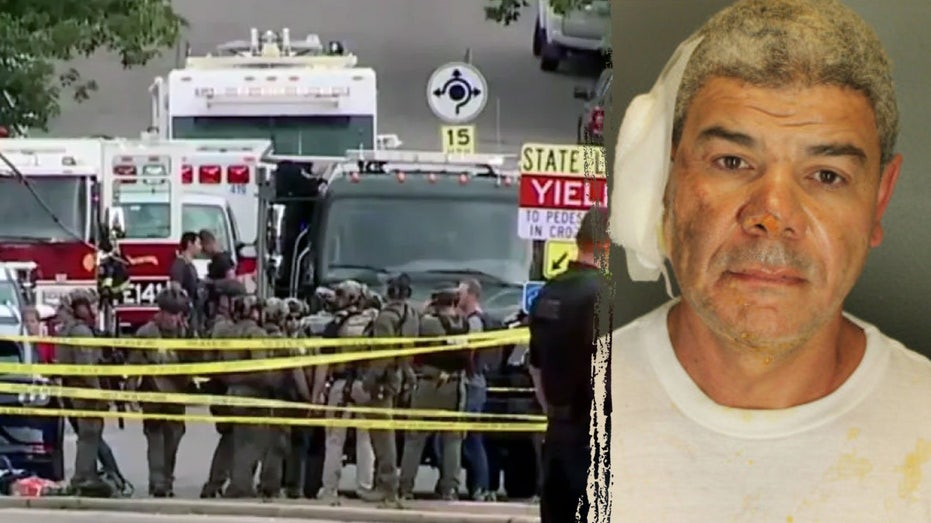Retired FBI Agent Investigates Radicalization of Boulder Illegal Immigrant Terror Suspect
Authorities probe firebombing at Boulder pro-Israel rally, scrutinizing Egyptian suspect's radicalization and possible domestic terror ties.

The recent firebombing at a pro-Israel rally in Boulder, Colorado has put authorities on high alert as they intensify their investigation into the motives and background of the suspect, Mohamed Sabry Soliman, a 45-year-old Egyptian national who had overstayed his visa. The attack, marked by the use of Molotov cocktails and a homemade flamethrower, left nearly a dozen people injured and sent shockwaves through the local community. Officials say the incident carried ideological overtones, as the attacker reportedly shouted “Free Palestine” and other politically charged slogans throughout the assault.
According to retired FBI special agent Jason Pack, law enforcement is conducting a thorough forensic sweep at the site, gathering device fragments, accelerant residues, fingerprints, and reviewing surveillance footage. International cooperation has also been activated, with background inquiries underway in Egypt, coordinated through the U.S. Embassy in Cairo, to unravel any possible radicalization or affiliations that could have influenced Soliman’s actions.
Investigators are now scrutinizing whether the assault meets the criteria for domestic terrorism as defined by U.S. law. As Pack explained, the focus is on determining if Soliman’s actions—targeting a public assembly and employing incendiary devices—were designed to intimidate, coerce, or make a political statement. Currently, Soliman faces multiple federal charges, including hate crimes motivated by perceived religious or ethnic differences, highlighting the possibility of both ideological extremism and targeted violence.
Evidence of premeditation has emerged: Soliman allegedly researched bomb-making techniques on YouTube, procured the necessary materials, and explicitly told investigators that he wished to kill the group he identified as “Zionists.” He admitted to searching online for the rally before launching the attack and expressed a willingness to repeat his actions if given the opportunity. In his statements, Soliman referenced “our land,” identifying it as Palestine, and described a desire to stop supporters of Israel from “taking over” that territory.
Behavioral analysis of the suspect also points to potential radicalization. Pack noted Soliman’s agitated state, lack of attempt to flee, and impulsive, disorganized manner as indicative of a “lone actor,” someone who may feel isolated and powerless and is propelled by grievance rather than a structured support network. While authorities have found no direct links to organized groups yet, they are not ruling out the influence of online propaganda or international contact, continuing to examine Soliman's digital footprint, travel history, and social interactions in Colorado Springs, where he lived.
The impact of the attack has reverberated far beyond Boulder. Community leaders, politicians, and advocacy groups have condemned the violence, labeling it a “vile, antisemitic act of terror.” The local law enforcement response has been swift and comprehensive, with ongoing efforts to piece together how the weapons were constructed, whether Soliman practiced or staged the attack in advance, and whether any warning signs were missed. The event has prompted a broader discussion about security at rallies and gatherings tied to contentious international issues, with officials nationwide reviewing their protocols to prevent similar incidents.
Despite the severity and planning evident in the case, authorities currently believe Soliman acted alone and have found no evidence of a broader conspiracy. However, experts caution that the unpredictability of so-called “lone wolf” attacks presents a unique and persistent challenge for law enforcement. “These kinds of lone-wolf attacks are tough to predict, but they’re not impossible to stop,” Pack emphasized. He underscored the importance of intelligence sharing, vigilance for behavioral warning signs, and public awareness in preventing future tragedies.
As the investigation continues, authorities remain committed to uncovering every detail behind the Boulder attack, aiming to fortify security, reassure the community, and bring the perpetrator to justice. In the aftermath, law enforcement agencies are urging the public to report suspicious behavior and threatening rhetoric, recognizing that proactive engagement is essential in confronting the evolving landscape of politically motivated violence in the United States.




